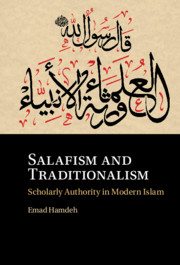Conclusion
Published online by Cambridge University Press: 08 March 2021
Summary
This book traced the origins and manifestation of the tensions between purist Salafis and Traditionalists. Frustrated with the religious, social, and political circumstances of the twentieth century, purist Salafis attempted to purge Islamic tradition in order to secure a pure version of Islam. The fall of the Ottoman Empire played a major role in shifting the religious paradigm that was present in the Muslim world. Traditionalists losing the support of the state and their monopoly over education provided other groups, such as Salafis, the opportunity to rise and challenge Traditionalist institutions. When Traditionalists lost the support of the state, they were uncertain of what would unfold and what their role in society would become. This uncertainty led many of them to rigidly adhere to Traditionalism because it was the only system they knew and trusted. This resulted in a culture of strict madhhabism where some Traditionalists adhered to the madhhabs in an uncompromising and uncritical manner. Furthermore, Traditionalists garnered the reputation of being outdated and unable to provide solutions to the swift changes that were taking place in the Muslim world. Leading Salafis emerged from this environment and they criticized the madhhabs as a source of division in the Muslim community.
- Type
- Chapter
- Information
- Salafism and TraditionalismScholarly Authority in Modern Islam, pp. 204 - 207Publisher: Cambridge University PressPrint publication year: 2021



